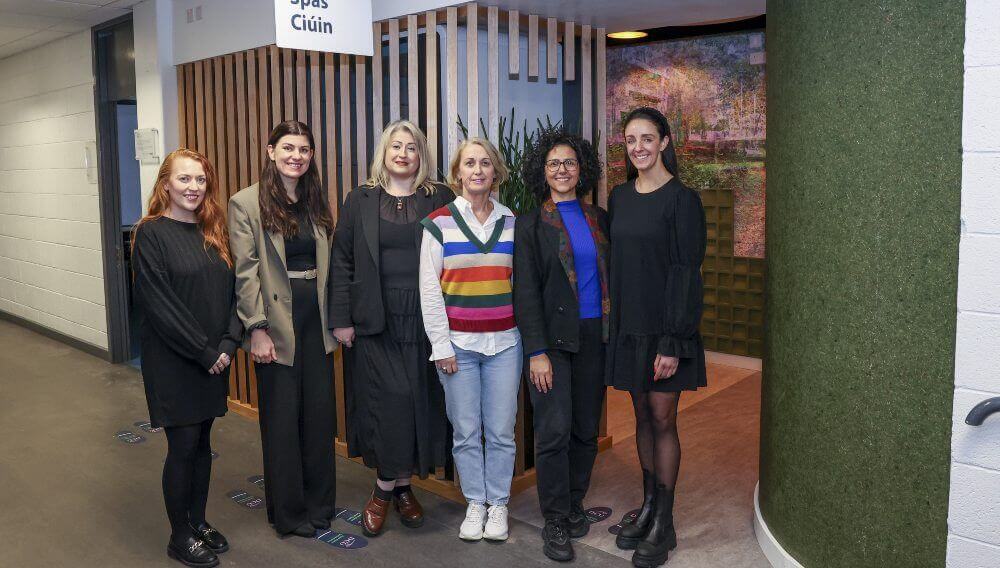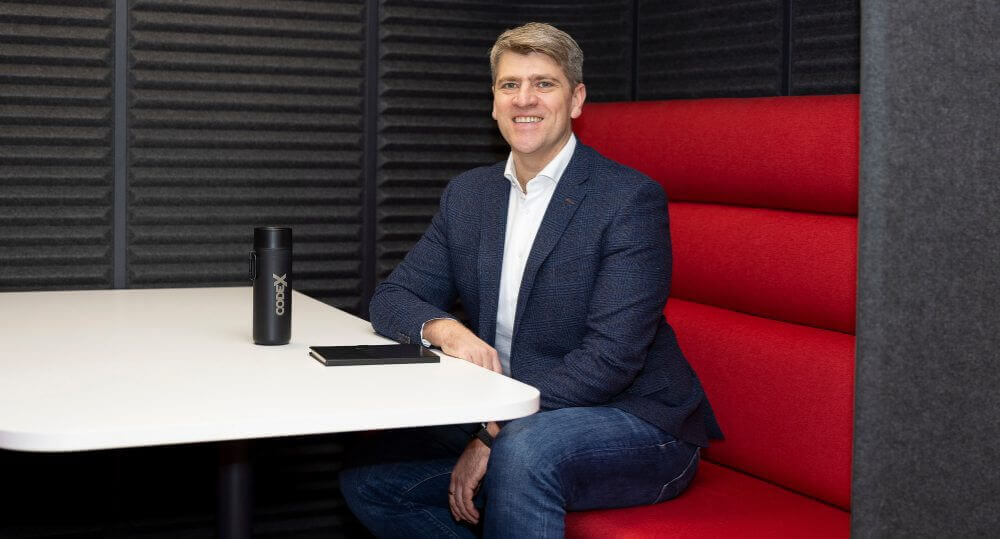Employer survey reveals widespread workplace barriers for neurodivergent employees.
A new study has revealed the extent of workplace challenges faced by neurodivergent employees in Ireland and the UK, with 96% of survey respondents reporting barriers that impact their daily work experience.
The research, conducted by office solutions provider Codex in partnership with Dublin-based Braver Coaching & Consulting, surveyed 220 neurodivergent employees in full-time employment to understand their workplace experiences and identify areas for improvement.
“At Codex, we believe the workplace should be a space where every individual feels seen, supported and empowered to succeed”
The study found that noise in the workplace was the most commonly reported barrier, affecting 61% of respondents. This challenge is particularly associated with sound sensitivity in large or open-plan office environments.
Lighting issues ranked as the second most significant barrier, with 56% of respondents citing difficulties with brightness, flicker, or artificial light sources that hamper their comfort and concentration. Social interaction challenges followed closely at 55%.
The majority of survey participants identified with ADHD (162 out of 220 respondents), followed by autism (137), dyslexia (80), and dyspraxia (62). Notably, 128 respondents said they identified with more than one form of neurodivergence.
Other significant workplace barriers included written or verbal communication difficulties (42%) and sensory processing requirements that can be heightened by environmental stimuli (42%).
“At Codex, we believe the workplace should be a space where every individual feels seen, supported and empowered to succeed,” said Patrick Murphy, CEO of Codex.
“However, we also understand that, for many people, traditional workplace structures and expectations can create unnecessary barriers and that is something we want to help change.”
Call for education and inclusion initiatives
“Codex’s ‘Neuroinclusion in the Workplace’ report is a timely piece of work considering the recent societal drive we have seen for a return to the office,” said Mark Scully, founder of Braver Coaching & Consulting, who co-authored the report. “Its research findings remind us that the traditional office environment is not an inclusive space for a lot of people, particularly neurodivergent people with sensory differences.”
The research highlighted strong support for workplace improvements, with 94% of respondents agreeing that recognising and valuing neurodiversity through education and inclusion initiatives would help create a more supportive work environment.
“We specifically designed the report to deliver real value for Irish employers with practical recommendations on how to take the first steps on their journey towards neuroinclusion and hopefully help start the conversation on neurodiversity in their workplaces,” Scully added.
Emily Harnett, Codex’s Head of Marketing, who has led the company’s neuroinclusion focus this year, outlined practical solutions that can make a difference.
“In addition to specific products like quiet spaces, our report highlights some of the ways in which employees can enhance the everyday workplace experience for neurodivergent employees,” Harnett said. “These can include measures such as flexible work arrangements, clear communication, alternative formats for sharing information, tailored support, regular feedback, neurodiversity training, mentorship, employee resource groups and mental health resources.”
Business case for inclusion
The report’s authors emphasized that neuroinclusion benefits extend beyond supporting employees to improving business outcomes.
“Really though, the most important starting point is an openness to having that conversation,” Harnett said. “From an employer’s perspective, neuroinclusion gives you a varied perspective, different ideas, other ways of looking at things, which can contribute to better ways of working and ultimately greater productivity.”
Murphy stressed the broader impact the research aims to achieve: “This report outlines the importance of neuroinclusion in the workplace; the insights we’ve learned from talking to people who are neurodivergent; and the actions that employers can take to alleviate some of the barriers that exist in many workplace environments. We hope that by sharing these insights, we can contribute to a broader conversation about how Irish businesses can build truly inclusive workplaces for all employees.”
Promoting acceptance of neurodivergent employees
The study was developed as part of Codex’s partnership with autism charity AsIAm, announced earlier this year to promote greater acceptance of neurodivergent employees and more inclusive working environments.
Building on the report’s findings, Codex plans to expand its range of accessibility products and services. The company already provides specialist support solutions including ‘escape’ pods and quiet spaces for autistic and neurodivergent employees to organizations across Ireland.
Codex will unveil new products and solutions for inclusive workplaces at the fourteenth international Autism Europe Congress in Dublin on September 11. The company is a main sponsor of the event, which will be hosted by AsIAm and Autism Europe.
Main image at top: Claire Twomey from ADHD Connections; Emily Harnett, Codex Office Solutions; Mary Rose Burke, CEO, Dublin Chamber; Adam Harris from AsIAm; Mark Scully from Braver Coaching; and Dr Áine O’Dea from Radiance Consulting. Photo: Conor McCabe Photography
-
Bank of Ireland is welcoming new customers every day – funding investments, working capital and expansions across multiple sectors. To learn more, click here
-
For support in challenging times, click here
-
Listen to the ThinkBusiness Podcast for business insights and inspiration. All episodes are here. You can also listen to the Podcast on:
-
Spotify
-
SoundCloud
-
Apple





